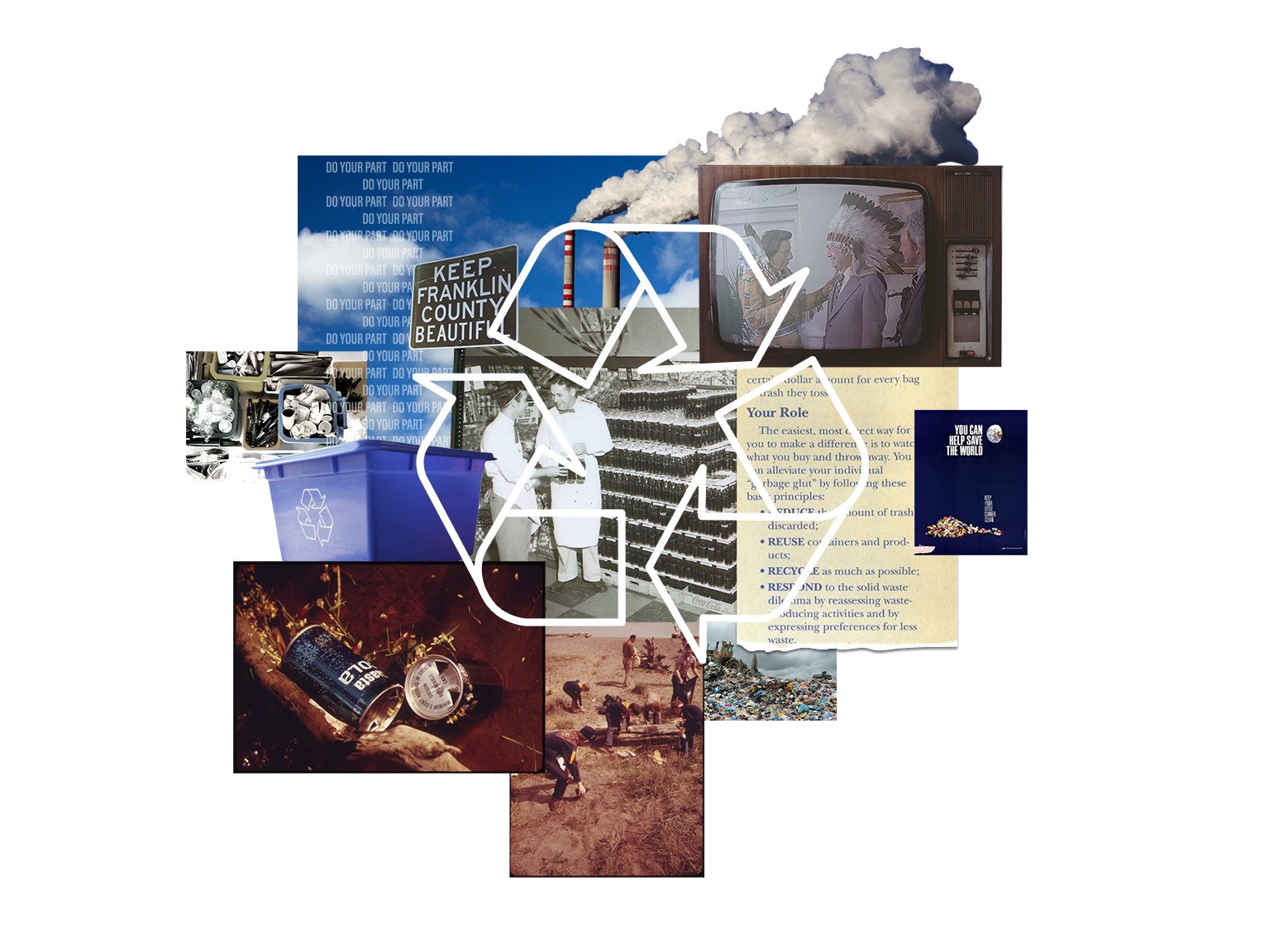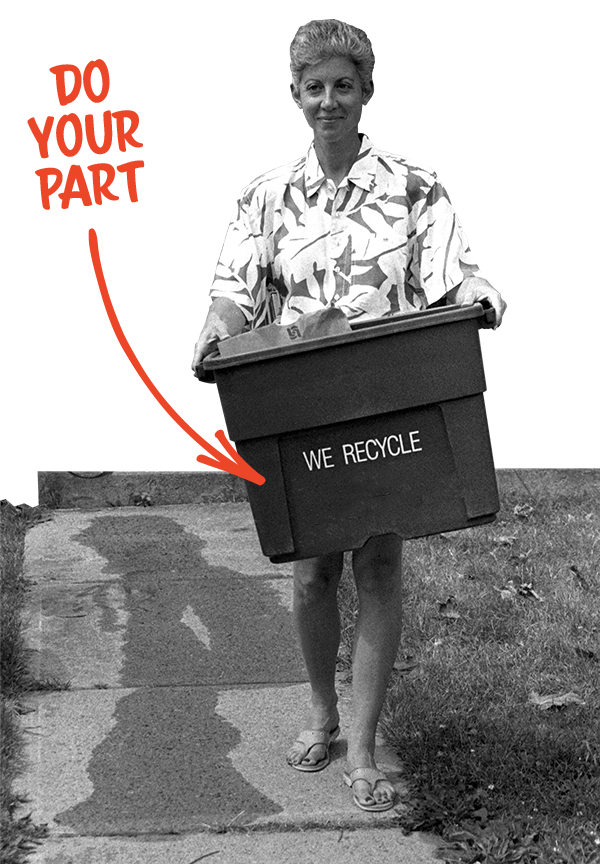The Recycling Distraction
The case for moving beyond recycling to reduce waste and prevent pollution.

An MFA thesis project by Rhys Gruebel, Department of Design at The Ohio State University

Since the 1980s, recycling has been a popular American approach to managing consumer waste. Recycling advocates claim that environmental benefits, such as waste reduction, litter prevention, and energy savings, are worth the significant costs of operating municipal recycling systems.
However, evidence from historians, sociologists, scientists, and other researchers demonstrates that the American recycling system was developed to benefit the business interests of manufacturers – not to benefit consumers, or cities, or workers, or the environment.
Recycling distracts people from pursing political solutions to environmental problems, and from demanding systemic changes to reduce waste and prevent pollution. Recycling keeps people busy.
Contents
Chapter 1
Recycling in America.
Chapter 2
The environmental benefits of recycling are misunderstood and overrated.
Chapter 3
Recycling helps manufacturers avoid environmental responsibility.
Chapter 4
Recycling won’t prevent America from drowning in plastic waste.
Chapter 5
A path forward.

“Busy-ness is a fulfilling sense of work and achievement that often brings positive side effects but fails to reach the central effect. If progress is a flowing stream, busy-ness is an eddy, moving vigorously but not forward.”
Chapter 1: Recycling in America.
